Previous articles discussed his war on whistleblowers, free expression and dissent.
Sibel Edmonds founded the National Security Whistleblowers Coalition (NSWBC). She did so to aid “national security whistleblowers through a variety of methods.”
The ACLU called her “the most gagged person in the history of the United States.”
Since 1977, the Government Accountability Project (GAP) calls itself “the nation’s leading whistleblower protection and advocacy organization.”
“What is a Whistleblower,” it asks?
Anyone “who discloses information that (he or she) reasonably believes is evidence of illegality, gross waste or fraud, mismanagement, abuse of power, general wrongdoing, or a substantial and specific danger to public health and safety.”
Typically, whistleblowers speak out to parties that can influence and rectify the situation.
These parties include the media, organizational managers, hotlines, or Congressional members/staff, to name a few.
On April 1, activist lawyers launched the Whistleblowers Defense League (WDL). Founding members include Jay Leiderman, Dennis Roberts, and Jason Flores-Williams.
Center for Constitutional Rights President Emeritus Michael Ratner praised their initiative, saying:
Every effort that focuses on the defense of whistleblowers, internet free speech activists, publishers and others persecuted by the US government is to be applauded.
This group joins many other(s) who are already defending those accused of shining light on the dark secrets of government and corporations.
A WDL announcement said:
We have entered a dangerous time in America. The FBI and Department of Justice are using harassment and prosecution as a tool to chill and silence journalism, on-line activism and dissent.
Co-founder Jay Leiberman stressed that “People are being subpoenaed, indicted and incarcerated for simply exploring the truth.”
The government has amended the constitution with fear.
In response, a nation-wide group of expert criminal defense attorneys have formed the Whistleblower Defense League to defend and encourage those willing to investigate and speak out against the corporate and political forces threatening our democracy.
Candidate Obama promised transparency, accountability, and reform. President Obama targeted more whistleblowers than all his predecessors combined.
He usurped diktat powers to do so. He prioritizes police state harshness. On January 25, he issued a barely noticed memorandum titled: “Presidential Memorandum - Rulemaking Concerning the Standards for Designating Positions in the Competitive Service as National Security Sensitive and Related Matters.”
It pertains to proposed “amended regulations contained in the Office of Personnel Management’s notice of proposed rulemaking in 75 Fed. Reg. 77783 (December 14, 2010),”
Its purpose “is to clarify the requirements and procedures agencies should observe when designating national security positions as required under EO 10450, Security Requirements for Government Employment.”
National security positions are defined as “any position(s) in a department or agency, the occupant of which could bring about, by virtue of the nature of the position, a material adverse effect on the national security.”
The purpose of the revisions is to clarify the categories of positions which, by virtue of the nature of their duties, have the potential to bring about a material adverse impact on the national security, whether or not the positions require access to classified information.
Another purpose is to properly designate each position with regard to public trust and national security considerations.
Both are necessary, it says, “for determining appropriate investigative requirements.” Clarification is needed to decide when they’re required.
At issue is establishing standards to give federal officials authorization to fire employees without appeal. They can be designated ineligible to hole “noncritical sensitive” jobs for any reason or none at all.
They can be prosecuted for disclosing information the public has a right to know. Doing so can be called compromising national security.
Longstanding civil service law doesn’t matter. It’s fundamental for protecting whistleblower rights. One of the first laws enacted was the 1863 United False Claims Act. It targeted persons and federal contractors defrauding the government.
The 1978 Civil Service Reform Act (CSRA) abolished the Civil Service Commission. Three new agencies replaced it: the Office of Personnel Management (OPM), the Merit Systems Protection Board (MSPB), and the Federal Labor Relations Authority (FLRA).
OPM advises executive branch agencies. It issues human resources regulations.
FLRA’s responsible for federal employee rights. It focuses on issues related to collective bargaining.
MSPB handles federal employee appeals. It does so with regard to discipline, discrimination and dismissals.
CSRA prohibits discrimination based on marital status, race, religion, political activity or affiliation. Affected employees may petition the Office of Special Counsel.
The 1989 Whistleblower Protection Act protects federal employees who report misconduct. Federal agencies are prohibited from retaliating against those who do so.
Whistleblowers may report law or regulatory violations, gross mismanagement, waste, fraud and/or abuse, or acts endangering public health or safety.
The Office of Special Council is empowered to investigate whistleblower complaints.
The Merit Systems Protection Board adjudicates them.
The Court of Appeals for the Federal Circuit is the only judicial body authorized to hear whistleblower case appeals. Since the Whistleblower Protection Act was revised in 1994, it ruled on 203 cases. Only three times did whistleblowers prevail.
At least 18 federal statutes protect private sector whistleblowers. They fall short of full protection. What corporations want they get.
They write legislation Congress passes. Sarbanes-Oxley, the FDA Food Safety Modernization Act, and Dodd-Frank are three of many examples.
On November 27, 2012, the Whistleblower Protection Enhancement Act (WPEA) became law.
Government Accountability Project Legal Director Tom Devine said:
This reform took 13 years to pass because it can make so much difference against fraud, waste and abuse.
Government managers at all levels made pleas and repeatedly blocked the bill through procedural sabotage.
But once there were no more secret ‘holds,’ the WPEA passed unanimously, because no politician in a free society can openly oppose freedom of speech.
Reforms enacted protect federal employees from reprisal for:
- disclosing misconduct;
- revealing it to co-workers or supervisors;
- disclosing policy decision consequences; or
- doing any or all of the above in relation to their position or duties.
Obama signed the legislation into law. He’s targeted whistleblowers more aggressively than all his predecessors combined. He circumvented or ignored legal provisions.
His January 25 memorandum makes it easier to do so. Whistleblower advocacy groups expressed concern.
During Obama’s first term, he targeted record numbers of government employees, journalists and others.
He did so on national security grounds. Prosecutions were for allegedly leaking classified information. True or false doesn’t matter.
At issue is revealing information Washington wants kept secret. Anyone challenging government authority is vulnerable. So are supporters of right over wrong.
A Final Comment
On May 24, The Government Accountability Project headlined “GAP Praises Long-Overdue Overhaul of Military Whistleblower Protection Enhancement Act of 2013 (MMPEA).”
On February 14, HR 704: Military Whistleblower Protection Enhancement Act was introduced. It was sent to committee. No further action was taken.
On May 24, Senator Mark Warner (D. VA) introduced a companion bill. It falls short of what’s needed. It relates to sexual assaults. They’re one of many abuses needing addressing and redress.
GAP Legal Director Tom Devine said:
Sexual assaults in the military continue for the same reasons as other human rights violations - secrecy coupled with weak or nonexistent rights to challenge abuses of power.
For 25 years, the Military Whistleblower Protection Act has been so weak that GAP has advised soldiers not to file complaints under it.
This legislation would replace token rights with those equivalent to the civil service Whistleblower Protection Act.
Enactment will be a step in the right direction. Doing so won’t protect whistleblower rights.
Stronger measures with teeth are needed. Everyone deserves them. Fundamental freedoms are on the line. They’re disappearing in plain sight.
Vitally important whistleblower rights alone are threatened. Legislation protecting them falls short of what’s needed. Obama wants laws entirely circumvented.
His January 25 memorandum addresses establishing new standards. He wants them overriding existing protections. He claims his mandate applies solely to positions deemed “sensitive.”
Proposed rules are vague. They provide wiggle room to target anyone for any reason or none at all. So-called “sensitive” positions include any potentially having “a material adverse impact” on national security.
Saying so is in the eye of the beholder. Virtually all government employees are vulnerable. So are journalists, military personnel, activists and others. First Amendment rights are threatened.
Anyone exposing government or military wrongdoing can be fired, fined, prosecuted, court martialed, and/or imprisoned.
Doing so reflects police state justice. America’s on a fast track toward institutionalizing it. It could arrive full-blown any time. Any pretext real or invented could justify it. Rogue states govern that way.
http://www.activistpost.com/2013/06/obama-wants-whistleblowers-silenced.html

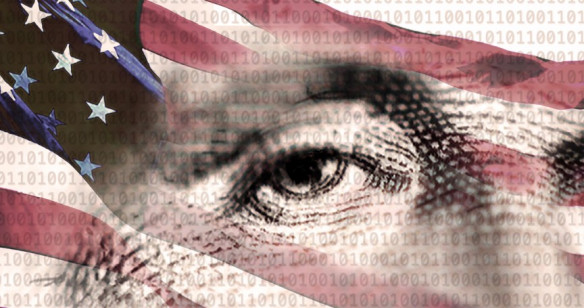


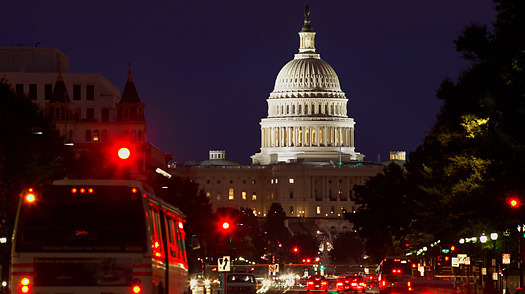


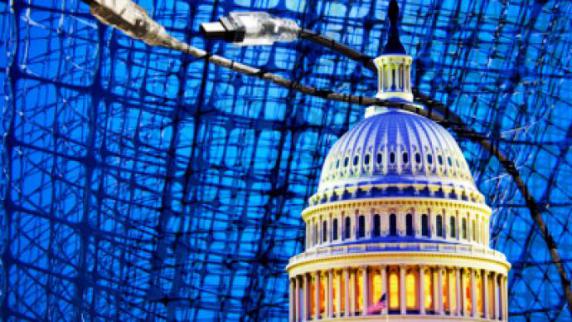


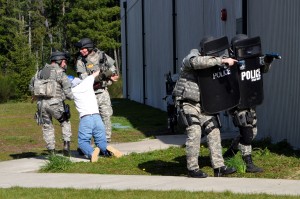

 Just a little over a year ago, President Obama signed an Executive Order titled
Just a little over a year ago, President Obama signed an Executive Order titled 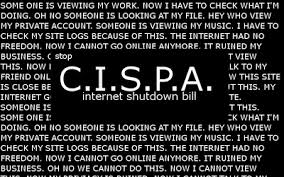

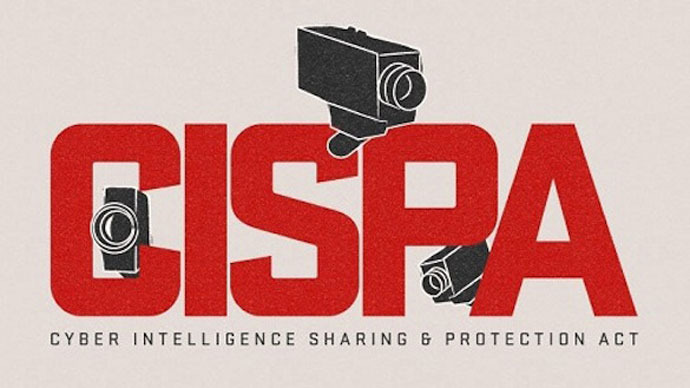
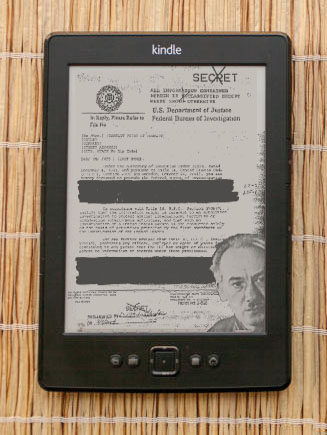






 Dearborn County Sheriff’s DepartmentThe intimidation charge related to Brewington’s comments about Humphrey, which was treated as a felony because it involved a judicial officer, was based on the allegation that he “communicated to another person a threat with the intent that the other person be placed in fear of retaliation for a prior lawful act.” The threat in this case was that Brewington would “expose the person threatened to hatred, contempt, disgrace, or ridicule.” Upholding Brewington’s conviction on this count, the Indiana Court of Appeals
Dearborn County Sheriff’s DepartmentThe intimidation charge related to Brewington’s comments about Humphrey, which was treated as a felony because it involved a judicial officer, was based on the allegation that he “communicated to another person a threat with the intent that the other person be placed in fear of retaliation for a prior lawful act.” The threat in this case was that Brewington would “expose the person threatened to hatred, contempt, disgrace, or ridicule.” Upholding Brewington’s conviction on this count, the Indiana Court of Appeals 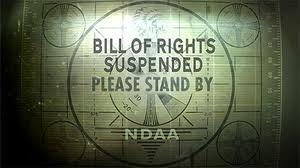
 (www.sherriequestioningall.blogspot.com) Well is it any wonder they want to wipe out every single Bill of Rights we have? We have had only 2 left, the 2nd amendment (they are working on) and the 1st amendment (up to a point).
(www.sherriequestioningall.blogspot.com) Well is it any wonder they want to wipe out every single Bill of Rights we have? We have had only 2 left, the 2nd amendment (they are working on) and the 1st amendment (up to a point). (IOL) - All personal information stored by British internet users on major “cloud” computing services including Google Drive can be spied upon routinely without their knowledge by US authorities under newly-approved legislation, it can be disclosed.
(IOL) - All personal information stored by British internet users on major “cloud” computing services including Google Drive can be spied upon routinely without their knowledge by US authorities under newly-approved legislation, it can be disclosed.